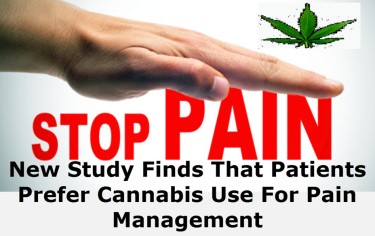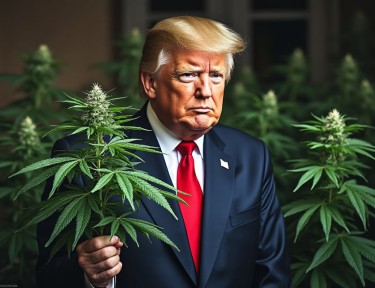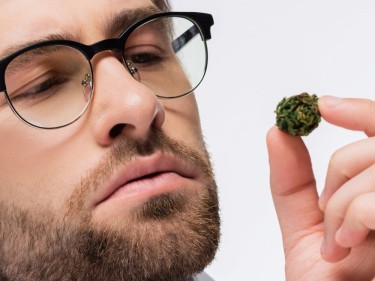Cannabis News
How Cannabis Promotes Healing While Big Pharma Promotes Disease Management
Published
2 years agoon
By
admin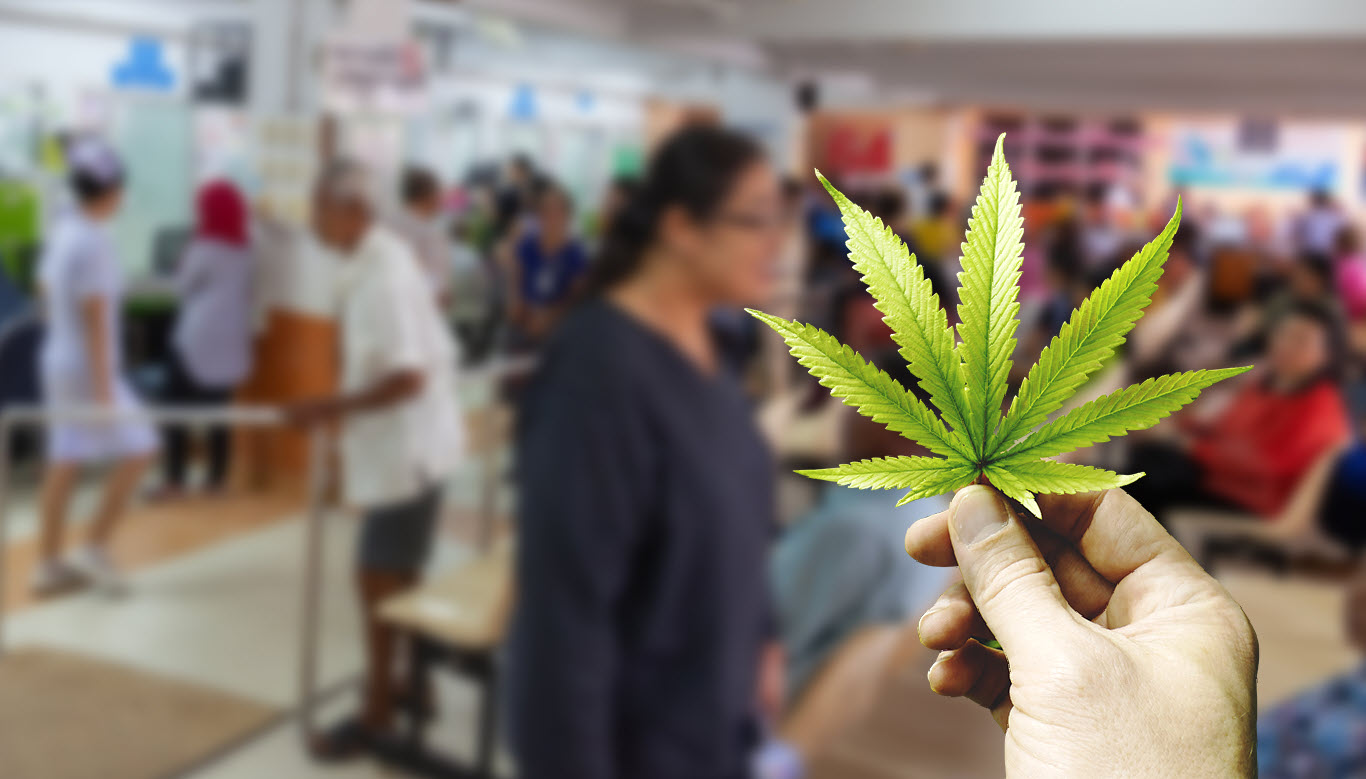

How Cannabis Warps Your Mind In Relation To Illness
Big Pharma doesn’t want you to be healthy. At least, this isn’t very good for their profit margins. However, I think it’s important to make a distinction between pharma and Big Pharma.
Pharmaceutical companies primarily focus on treating illnesses and medical conditions, and there’s a complex interplay between their goals and promoting overall health. It’s not accurate to say that they don’t want healthy people, but their profit model is largely driven by medications and treatments, which are essential for addressing diseases.
Big Pharma, are the top players within the pharmaceutical industry and are the ones who spend billions on dining congress people, sponsoring the news, prime television, and anything they can. It’s important to distinguish an independent pharmaceutical company that might be working on some specific disease, than the “Big Fish” on the market. Despite the fact that “Big Pharma” would probably end up buying out the small fish, there is a distinction between the chemists and scientists that are genuinely working on curing diseases for humanity, and the people who are responsible for sales and distribution.
One way the pharmaceutical industry can be perceived as keeping people unhealthy is through the concept of “disease management.”
Instead of focusing solely on prevention, they often emphasize managing and treating chronic conditions with medications. This can create a cycle where people are reliant on these medications rather than addressing underlying lifestyle factors.
Furthermore, the profit-driven nature of the industry can sometimes prioritize the development and promotion of drugs over holistic approaches like lifestyle changes. The marketing of drugs for conditions that might be managed through healthier habits can indirectly discourage people from prioritizing prevention and wellness. For example, “using a weight loss drug” vs simply eating better and becoming more active.
However, it’s important to recognize that this issue is multifaceted.
Many pharmaceutical companies invest in research and development to find cures and treatments for serious diseases. The challenge lies in striking a balance between profit motives and the genuine desire to improve public health. Addressing the complexities of this dynamic requires a comprehensive approach involving healthcare policies, patient education, and shifting societal perspectives on health and well-being.
Now that we’ve established this, let me restate my original premise.
“BIG PHARMA DOES NOT WANT HEALTHY PEOPLE!”
This is also a reason why Big Pharma isn’t too keen on legalizing cannabis around the world, and why in the US – despite having nearly 80% approval among voters – the DEA will “check” about a report so they can do their report in order to “reschedule cannabis”.
Despite all of the approval of cannabis, you have credit card processors like Visa and MasterCard declining cannabis related purchases. You have delay after delay and it really isn’t “that difficult”.
We have now more than 26-years of legal cannabis in one form or another. We know how people react to different potencies. The only reason why we aren’t seeing cannabis legalized and completely removed from the Controlled Substance Act is because Big Pharma doesn’t want that to happen.
Cannabis promotes Healing, Pharma Promotes Disease Management
Pharma doesn’t like cannabis because they can’t patent the plant. They probably will be able to patent particular cannabinoid concoctions and processes, like creating cannabinoids through bacteria farms and so forth.
But, even with all the science, to get your own cannabis fresh from the ground, you just need some sunshine, soil, water, and patience. Then, taking the cannabis and converting it into oil or other forms of consumption is relatively easy.
With cannabis, you can be the complete supply chain for your medicine without the need of pharma’s involvement.
Because growing your medicine is so easy, it’s safe to assume that you’d eventually grow a small surplus, process a bunch of it, and have an infinite supply of medicine without having to fork over a dime to anyone else.
More importantly, because you’re managing your pain or treating your symptoms with cannabis, you’re not feeling the side effects of the pharmaceuticals – and with more vigor, you begin to get more active. You eat better, you exercise, and before your know it – you’re no longer ill but healthy.
You lose weight, you gain more energy, your thinking is sharper – you’re a whole different human.
This is what Pharma abhors above all – self-sufficiency and the healer’s mindset. Cannabis inspires the body to heal. You smoke a joint and it might not “dull the pain” completely, but it allows you to reevaluate and disengage from the symptom. This creates space between you and the disease, and you allow your awareness to drift away from the cloud of association of illness.
As your mind is distracted from the symptoms, your body can begin to heal itself, as you are no longer tense and inhibiting the process. You shift into rest and digest mode, relaxing, allowing the healing to take place.
Cannabis also helps the mind steer away from the negativity. It allows the mind to detach from the “pain of the moment”, accept it, and simply decide to engage with other aspects of life.
“Yea it still hurts, but I’m going to keep on living and going forward”.
This isn’t an action of defiance to the illness. It’s saying, “everyday my body is getting stronger, every day I am getting healthier…”
Taking medicine to control the symptoms, that is an act of “defiance” against the disease. It’s saying, “Yes I’m sick and it hurts in these different parts, and as a result I’m taking this medicine because it’s too much for me to handle.”
This isn’t to say that you can’t take medicine to control the symptoms. Sometimes, even the chirpiest of attitudes won’t cure your headache. Taking some Aspirin in these instances to deal with the pain of the headache allows you to be functional. But, simultaneously you’ll rest, hydrate, relax (in the case it’s stress related). You focus on the healing as opposed to treating the symptoms.
Why this shift matters?
The difference in mentality comes down to being a victim of your circumstances versus being someone who is actively involved in your healing process. You are choosing to eat better, to sleep better, to do exercise, to watch our emotions.
This is an active stance towards optimal living, and as a result, your unconscious mind gets conditioned to look for more of the same. The unconscious mind only replicates that what we focus on and discovers patterns within the fabric of reality.
Therefore, if you’re focused on being “healthy” and adhering a “healthy lifestyle”. The unconscious mind will begin to seek out similar events in your life, compounding your actions to become healthier and healthier.
However, pill poppers become dependent on their source of symptom management. Instead of coming to terms with their pain, to examine their relationship to their pain, to learn how deep the wounds actually go – and who find their relief in the bottom of a pill jar.
These people will forever be subjected to the pain. When their opioids run out, the pain returns and much greater intensity.
This isn’t to say that opioids on occasions can’t be a blessing. But as we know, many people don’t take opioids sparingly. They get prescribed hard drugs post surgery, relieving their pain momentarily, but also potentially hijacking their reward system, hooking them on a potent narcotic.
When the prescription runs out, people often turn to black market opioids to satisfy their need. Even within the black market, Pharma makes some money. After all, if some dealer on the street is selling Oxy, Pharma already got paid.
Why is this important?
Well – turns out that legalized cannabis has a significant impact on illegal opioid consumption.
Researchers at the British Columbia Centre on Substance Use and UCLA surveyed 205 people who use cannabis and opioids without a prescription from December 2019 to November 2021, aiming to test the theory that marijuana represents an effective harm reduction tool amid the overdose crisis.
The study, published in the International Journal of Drug Policy, found that 58 percent of participants reported that their motivation to use marijuana was to reduce opioid cravings. And a multivariable analysis showed that cannabis use “was significantly associated with self-reported reductions in opioid use.” – Source Marijuana Moment
Can you imagine a near 60% reduction in profits for Pharma? No need to imagine, this is already happening on a state level. Big Pharmaceuticals are said to lose billions every time cannabis is legalized.
The findings reveal that the legalization of cannabis in those states coincided with a 1.5-2% drop in stock prices for giants like Purdue Pharma and Pfizer, among others, which amounts to roughly $3 billion in lost sales and nearly $10 billion in market share losses for the industry as a whole.
After analyzing stock market data recorded in the immediate aftermath of cannabis legalization in legal states, researchers observed a statistically significant drop in the returns of major drug companies. The study’s authors said the trend “persists during the 20 business days following” legalization, resulting in market share losses worth billions, and a decline in post-legalization sales for Big Pharma. – Source (Leafly)
What this means is that whenever cannabis is legalized pharma loses money not only on the legal market, but consumption declines on the black market as well.
Couple this with people who smoke cannabis generally having a lower body-mass index than their non-smoking counterparts, the fact that cannabis consumption enhances the enjoyment of working out and increases the speed of recovery.
This doesn’t mean that all stoner habits are healthy. On the contrary, “the munchies” can be a double-edged sword. Nonetheless, despite all of this cannabis users seem to be “healthy” and those who use medical marijuana will talk about their “journey to health”.
I personally think that this is the key element in the equation – the shift in mindset. Why depend on pharma if I can grow my own medicine? Why pay them when I have the ability to us nature in my favor without the intervention of a third party?
These lines of questioning petrifies Big Pharma and as a result they fund lawmakers, the media, the scientific communities, anyone who is willing to take their money – and why cannabis still hasn’t been legalized in the US despite its popularity.
The Sticky Bottom-line
Some might think that mindset doesn’t matter, but any psychonaut knows it matters a great deal. Therefore, if cannabis helps people tune into the healing frequency as opposed to disease management frequency, then you’ll create “healthier people”.
Pharma doesn’t like this. They may claim they want to research the healing potential of cannabis, but only to turn it into drugs they can patent. They have no interest in legality, they have no interest in human rights.
To Big Pharma, you’re the product. They buy you from the government, the entertainers, the media – all with the idea of injecting fear, confusion, and disease into your mindscape for the sake of maximizing profits.
Or maybe I’m just high!
CANNABIS FOR PAIN MANAGEMENT, READ ON…
You may like
-
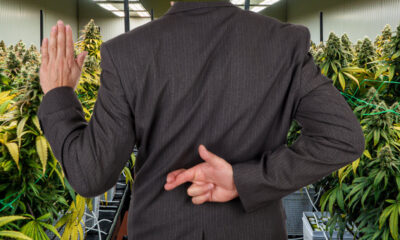

The Cannabis Rescheduling Ruse – White House Says No Action Planned on Cannabis Reform, Hate to Say I Told You So!
-
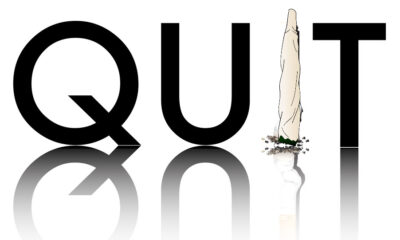

Why Quitting Alcohol or Weed Won’t Heal the Pain That Caused You to Start Using Them in the First Place
-


Karma Koala Podcast 247: Speaking with Dr. Natalie Corthésy senior lecturer university of West Indies & Enrico Bonadio professor of law City St George’s University of London about their forthcoming Edward Elgar title, “Intellectual Property and Cannabis”
-


MJBizCon offers speakers chance to share cannabis insights, shape industry
-


The Best Tariff Friendly Cocktails
-


Cannabis Consumers Are Being Hit By The Tariffs
Cannabis News
The Cannabis Rescheduling Ruse – White House Says No Action Planned on Cannabis Reform, Hate to Say I Told You So!
Published
54 minutes agoon
April 5, 2025By
admin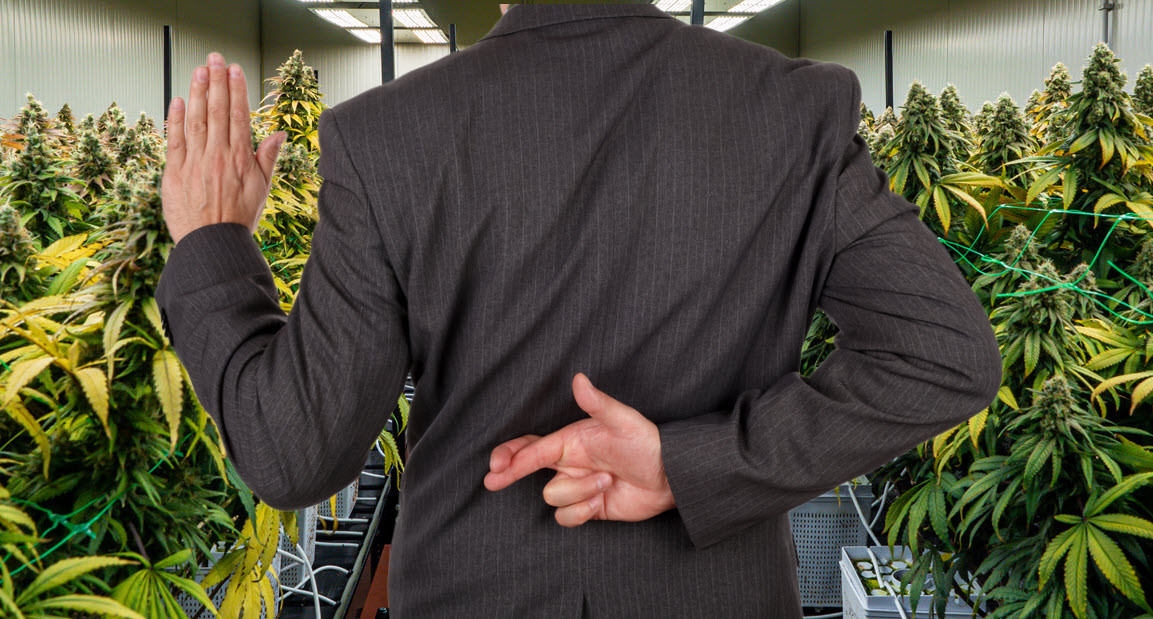
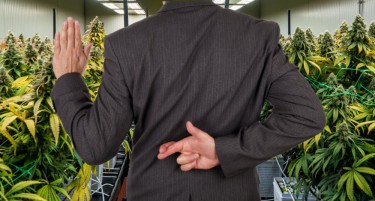
The Rescheduling Ruse: Why I Told You So
In a move that surprised absolutely no one who’s been paying attention, the White House recently announced it has “no action planned” on marijuana reform. Yes, the same marijuana reform that President Trump enthusiastically backed on the campaign trail just weeks before Election Day.
The writing was on the wall all along, folks. I’ve been telling you for months that the much-hyped rescheduling of cannabis from Schedule I to Schedule III was nothing more than political theater – a carefully choreographed dance designed to generate headlines without delivering substantive change. And here we are, with yet another administration putting cannabis reform on the back burner while millions of Americans continue to live under the shadow of failed prohibition policies.
Don’t get me wrong – I’m not here to play political favorites. This isn’t a red versus blue issue. The Biden administration dangled the same carrot, initiating a rescheduling process that conveniently stalled due to “complications” with DEA hearings. Different players, same game.
Let’s take a step back and examine what’s really happening here, because the truth about cannabis reform in America is both simpler and more complex than most people realize.
Trump’s pre-election cannabis conversion was quite the spectacle, wasn’t it? Suddenly, the man who selected Jeff “Good People Don’t Smoke Marijuana” Sessions as his first Attorney General was voicing support for rescheduling, banking access, and even Florida’s legalization initiative.
But as CNN recently reported, “no action is being considered at this time.” The honeymoon didn’t even last through the first dance. The administration’s priorities lie elsewhere – immigration, government spending, foreign policy – while cannabis reform gets shelved alongside countless other campaign promises.
Interestingly, CNN did note that Trump and his transition team attempted to include cannabis banking protections in December’s government funding resolution. This behind-the-scenes effort suggests at least some genuine interest in the issue, but hardly qualifies as the bold reform millions of voters were led to expect.
This pattern should feel familiar. The Biden administration made similar overtures, with the president announcing pardons for federal marijuana possession offenses and directing an administrative review of cannabis scheduling. That process dragged on for over a year, with the DEA repeatedly delaying final action. Biden got the headlines; cannabis users got nothing.
The harsh reality? Cannabis reform makes for good campaign fodder, but terrible governance priorities. Once elected, the political calculus changes dramatically. The motivation to deliver evaporates when the votes are already counted and the special interests start calling in their favors.
At the heart of this perpetual delay lies the Drug Enforcement Administration – an agency whose very existence depends on the continuation of the drug war. Expecting the DEA to facilitate cannabis reform is like asking a turkey to vote for Thanksgiving.
The DEA has mastered the art of procedural obstruction. Under Biden, they scheduled hearings, requested extensions, and effectively ran out the clock. Under Trump, they appear poised to do absolutely nothing, perhaps not even bothering with the pretense of consideration.
The pattern becomes clearer when you look at Trump’s cabinet picks. His nominee to lead the DEA, Terrance Cole, has previously voiced serious concerns about marijuana dangers and linked its use to higher suicide risk among youth. His HHS general counsel nominee, Mike Stuart, is so staunchly anti-cannabis that prohibitionist groups openly celebrated his selection.
Even Robert F. Kennedy Jr., who previously supported legalization, has walked back his stance since being confirmed as HHS Secretary, stating he’s “worried about” high-potency marijuana and deferring to the DEA on rescheduling.
When you stack the regulatory deck with cannabis skeptics, you’ve telegraphed your true intentions no matter what you said on the campaign trail.
Here’s what I’ve been saying all along: meaningful cannabis reform was never going to come from the White House, regardless of who occupied it. The DEA will never willingly relinquish its power, and politicians will always prioritize easier wins over controversial reforms.
The only real path forward is through Congress completely removing cannabis from the Controlled Substances Act. Full stop. No rescheduling, no administrative reviews, no half-measures. Cannabis needs to be descheduled entirely, returning regulatory authority to the states where it belongs.
But while we push for that goal, the real revolution continues on two fronts.
First, state-by-state legalization marches forward. Despite federal inaction, 38 states have medical marijuana programs, and 24 states plus DC have legalized adult use. Each new state that joins the ranks weakens prohibition’s grip and demonstrates the failure of federal policy.
Second, and perhaps more powerful, is what I call “mass defiance of an unjust law.” Every day, millions of Americans peacefully consume cannabis in direct violation of federal law. They grow it in their homes, share it with friends, and build communities around it. This civil disobedience at scale is perhaps the most effective weapon against prohibition.
The federal government simply doesn’t have the resources to enforce cannabis prohibition against a population that increasingly rejects it. When enough people break an unjust law, the law itself becomes unenforceable.
I hate to say I told you so, but… I told you so. The rescheduling promise was never going to materialize, regardless of who won the White House. It was a political mirage, designed to attract voters while requiring minimal commitment.
But don’t mistake my cynicism about federal action for pessimism about our cause. Cannabis reform is happening – it’s just happening from the ground up rather than the top down. Every state that legalizes, every municipality that decriminalizes, every voter who demands change, and yes, every person who peacefully consumes despite prohibition is part of this unstoppable movement.
The lesson here is simple: Don’t put your faith in presidential promises or administrative processes. Put it in your local ballot initiatives, your state legislators, and your own power to reject unjust laws through peaceful non-compliance.
Cannabis prohibition is dying, not because presidents commanded it, but because we the people have decided it must end. That’s the real power in our democracy – not the fleeting promises of politicians, but the sustained will of the citizens.
So next time a candidate promises to fix cannabis laws, remember this moment. Then go out and fix them yourself, one vote, one state, and one act of principled defiance at a time. That’s how real change happens in America, and that’s how we’ll finally end cannabis prohibition once and for all.
CANNABIS UNDER TRUMP 2.0, READ ON…
Cannabis News
Why Quitting Alcohol or Weed Won’t Heal the Pain That Caused You to Start Using Them in the First Place
Published
2 hours agoon
April 5, 2025By
admin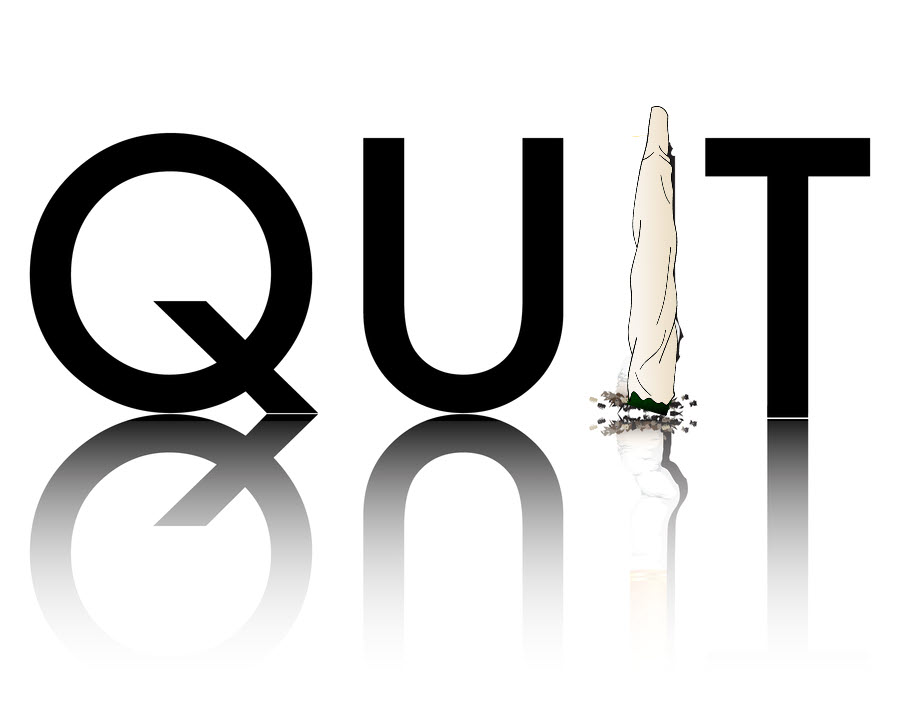
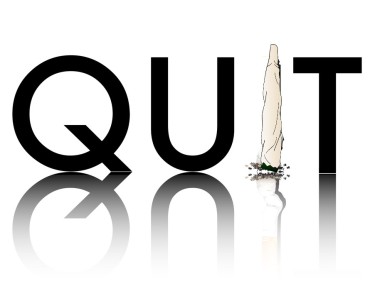
Quitting Won’t Fill the Hole
There’s a pervasive notion that floats around recovery circles—this idea that once you kick your habit, everything will magically fall into place. The clouds will part, the birds will sing, and suddenly life will be worth living again. While it’s true that being addicted to a “thing,” whether substance or act, eventually tallies up consequences that weigh heavy on our souls, the math isn’t quite as simple as “remove addiction, add happiness.”
I’ve watched countless cannabis enthusiasts (and addicts of all stripes) fall into this trap. They sit in circles, eyes gleaming with hope as they declare, “If I could only quit, then everything would be better…” But they’re missing something crucial—their addiction isn’t the source of their discontent; it’s merely a symptom of something deeper.
Addiction, at its core, is a means of dealing with something we cannot name or are desperately trying to avoid. It’s the bandage we slap over a wound without cleaning it first. The cannabis, the alcohol, the gambling, the endless scrolling—these aren’t the disease itself but rather the body’s misguided attempt at self-medication.
Here’s the uncomfortable truth that most recovery programs don’t emphasize enough: if you don’t do the real healing, even if you manage to white-knuckle your way through quitting one addiction, you’ll inevitably find something else to cover that gaping wound. Maybe you’ll trade joints for junk food, or bongs for binge-watching. The face of the addiction changes, but the role it plays remains constant.
Let’s take a deeper dive into this cycle and why simply quitting isn’t enough to truly heal.
First, we must acknowledge that when it comes to pain and addiction, everyone’s journey is unique. What feels like an insurmountable mountain to you might be a speed bump to someone else, and vice versa. There’s no universal scale for suffering, which makes navigating these waters all the more complex.
However, across all these varied experiences, there’s a common trap I’ve seen ensnare countless individuals—what I call the “If/Then Fallacy.” It’s the belief that one singular thing is the root cause of all our discomfort. This is where addicts often say, “If I can only kick this addiction, then my whole life would be better.” While this may seem logical on paper, it’s a deeply flawed perspective.
The real issue rarely lies with the substance or behavior itself but with something deeper—something the addiction is helping us avoid or cope with. Whether it’s trauma, depression, anxiety, or simply the existential weight of being human in an increasingly disconnected world, there’s usually a wound beneath the bandage.
Furthermore, the “If/Then” scenario places your healing, joy, and accomplishments in a fictional future state. “If I stop smoking weed, then I’ll finally have the motivation to start that business.” “If I quit drinking, then my relationship will improve.” These statements create a dangerous binary—because when the “if” is satisfied but the “then” doesn’t materialize, where does that leave you? Often, it leads to “If that didn’t work, then what’s the point of trying anything?”
This thinking creates a perfect setup for relapse or substituting one addiction for another. After all, if quitting didn’t magically transform your life as promised, why continue to deny yourself that temporary relief?
If you’ve been considering quitting cannabis or any other addiction, and you believe it to be the sole source of your unhappiness, I strongly urge you to reconsider your framework. The cannabis, or your relationship with it, is likely just a mask for your real pain. If you want to truly liberate yourself from the burden of addiction, you need to develop the capacity to sit with your pain, examine it, and cultivate joy despite it—not because it disappeared.
This article was inspired by a post I came across while scrolling through Reddit the other day—one of those moments where someone’s raw honesty stops you mid-scroll. A 32-year-old man shared that after smoking cannabis and drinking 4-6 beers daily for nearly his entire 20s, he had finally managed to quit both. No cannabis for almost six months, no alcohol for three. A significant achievement by any measure.
Yet instead of the transformation he expected, he felt “MISERABLE.” Despite taking medication for ADHD and anxiety, and despite removing substances that conventional wisdom says should improve his mental health, he felt no positive change. In fact, he felt worse, as if he’d “stopped doing things that were fun for me, or at least making life bearable.”
His post ended with a plea that broke my heart: “Is this just how I’m going to feel now? Does this go away eventually?”
This redditor’s experience perfectly illustrates the point—even when you manage to power through the physical and psychological challenges of quitting an addiction, your mental and spiritual state doesn’t necessarily transform as a result. His baseline remained exactly the same, perhaps even dipping lower without the chemical crutches he’d relied on for so long.
When you’re changing habits but not experiencing the promised benefits, it’s a clear sign that your discomfort or pain isn’t primarily coming from the substance. The cannabis or alcohol wasn’t creating your misery—it was masking it, providing temporary relief from a deeper issue that remains unaddressed.
This is something we all must consider when facing our compulsions. If you find yourself in a situation where you want to stop a behavior but simply can’t, it might be time to look deeper. Ask yourself, “Why do I do this activity?” And then ask “why” five more times, each answer digging a layer deeper toward the root cause.
Why do I smoke cannabis every night? Because it helps me relax. Why do I need help relaxing? Because my mind races with anxiety. Why does my mind race with anxiety? Because I’m worried about my future. Why am I worried about my future? Because I don’t feel secure in my career path. Why don’t I feel secure in my career path? Because I never really chose it—I fell into it. Why does that bother me? Because I feel like I’m not living authentically or pursuing my true passions.
Once you’ve excavated to this deeper level, you can begin to address the root causes directly. Perhaps the issue isn’t the cannabis at all, but rather that you need to reassess your career path or find meaning outside of work. Without this deeper work, quitting the substance becomes an exercise in willpower rather than healing.
Your addiction isn’t necessarily the root cause of your issues—it’s often just the most visible symptom. If you’re depressed, anxious, or feeling lost, it’s not primarily because of the substance; it’s because of something deeper that the substance helps you manage or forget temporarily.
Unless you actually do the internal work on these matters—examining your pain, seeking appropriate mental health support, rebuilding healthy relationships, finding meaning and purpose—no matter what you quit or how long you stay “clean,” you’ll likely find yourself seeking new ways to shield yourself from the pain. The prison isn’t cannabis or alcohol; it’s the unhealed wound those substances help you endure.
If you’re struggling right now, it’s absolutely important to seek help. That might mean therapy, support groups, or speaking with a healthcare provider about potential underlying mental health conditions that need treatment. But alongside that external support, commit to the honest and difficult work of looking inward. Ask yourself what you’re truly trying to avoid when you reach for that joint or that drink.
At the end of the day, we all have our struggles. If yours involves cannabis at this point in your life, there’s no judgment here. I’ve been there myself. But I’ve also learned that true healing rarely comes from simply removing something from your life—it comes from adding understanding, self-compassion, and addressing the real gaps in your heart and mind that the substance was never capable of filling in the first place.
The void can’t be filled by quitting. But quitting might just give you the clarity to finally see what the void truly needs.
QUITTING CANNABIS, READ ON…
THE STONER’S GUIDE TO QUITTING WEED – WAIT, WHAT…WHY?
Cannabis News
Scientists Now Think That One Compound in the Cannabis Plant Can Replace All Opiates
Published
2 days agoon
April 3, 2025By
admin

Which Cannabis Compound Do Scientists Think Can Replace Opiates?
…And Why This Is Important
Opiates are a type of pharmaceutical drug that’s been made from the opium poppy plant. While it’s somewhat a ‘natural’ substance that’s been extracted from the fibers and sap of the opium poppy plant, these are extremely dangerous sedatives that act on the central nervous system. However, there are completely synthetic opioids as well, which are manufactured entirely in laboratories.
Famous examples of well-known and widely-used opiates today include heroin, codeine, and morphine. They all work similarly, binding to the brain’s opioid receptors and users feel a drastic reduction in pain. It also causes users to feel euphoric, drowsy, or sleepy. Common side effects include constipation and nausea.
Because opiates are powerful for dulling one’s pain perceptions, they have become commonly prescribed by doctors and hospitals for pain relief. That said, opiates have become one of the world’s most addictive, dangerous, and fatal drugs – and you can get prescribed it right by your very own physician. Repeated use of opiates can easily lead to dependence and addiction, and eventually consuming high doses can drastically slow down breathing, and cause brain damage, or even death.
Since doctors still keep prescribing opioids, this has resulted in the deadly Opioid Epidemic, which has killed thousands of people. It’s a worrisome public health crisis, most especially because of fentanyl, an illegally manufactured opioid which is said to be 50 times more potent than heroin.
Could The Answer To The Opioid Epidemic Lie In Cannabis…Terpenes?
The past few years have shown that cannabis legalization is critical for surviving the opioid epidemic, and reducing overall opioid consumption.
The results of a recent research paper, which builds on past studies conducted by Dr. John Streicher, who is a member of the Comprehensive Center for Pain and Addiction, reveals fascinating findings. According to Streicher, cannabis terpenes were found to provide relief in inflammation models as well as on neuropathic pain caused by chemotherapy.
For the study, Streicher and his research team analyzed 4 kinds of terpenes that are found in mid to high levels in Cannabis sativa plants: linalool, geraniol, beta-caryophyllene, and alpha-humulene. They discovered that each terpene produced significant pain relief among mice subjects with fibromyalgia and post-operative pain, and among the terpenes, geraniol was found to be the most powerful.
“Our research is showing that terpenes are not a good option for reducing acute pain resulting from an injury, such as stubbing your toe or touching a hot stove; however, we are seeing significant reductions in pain when terpenes are used for chronic or pathological pain,” he said. “This study was the first to investigate the impact of terpenes in preclinical models of fibromyalgia and post-operative pain and expand the scope of potential pain-relieving treatments using terpenes,” Streicher said.
Cannabis terpenes are the compounds responsible for the aromatic profile of each strain; they are located in the plant trichomes. Not only do they contribute to each strain’s unique flavor and odor, but they also have valuable therapeutic and medicinal benefits. There are around 150 kinds of terpenes known today, though in the entire plant world, there are known to be some 20,000 terpenes.
Understanding the therapeutic benefits of terpenes is incredibly valuable also because they don’t contain THC (tetrahydrocannabinol), the compound in marijuana that gets you high.
“With fibromyalgia, there isn’t much of an understanding of what the pain state is, and there are not a lot of great options for treating it,” explains Streicher. “Our findings show that terpenes may be a viable treatment option for fibromyalgia pain, which could potentially have a large impact and make a difference for an under-treated population.”
Other Studies
This is not the first time that cannabis terpenes have been found to demonstrate excellent pain-relieving properties. It must be noted that just like what Streicher says, terpenes seem to do better with chronic pain management, instead of acute pain management.
Another study from 2024, which was published in The Journal of the Association for the Study of Pain, was conducted by researchers at the University of Arizona and the National Institutes of Health. The investigators analyzed the analgesic properties of different terpenes including geraniol, humulene, linalool, pinene, and caryophyllene among mice subjects with chemotherapy-induced peripheral neuropathy.
According to the researchers, all the terpenes delivered analgesic effects that were equivalent to around 10 mg/kg of morphine. It was also interesting to note that administering both morphine and terpenes together at low doses resulted in ‘enhanced’ pain-killing effects.
“Together these studies identify cannabis terpenes as potential therapeutics for chronic neuropathic pain,” said the investigators.
There have also been other studies that have found that combining cannabis with opioids can indeed provide long-lasting pain relief. It comes with the added benefit of reducing opioid doses needed for effective pain control. This phenomenon is called opioid-sparing. These types of protocols can be beneficial for patients who suffer from severe, chronic pain caused by cancer, arthritis, joint problems, fibromyalgia, diabetes, post-surgical pain, migraines, nerve damage, and so much more.
Conclusion
Learning more about the pain-killing properties of terpenes is extremely valuable for the medical community, patients, and even society as a whole. We can all do with less opioid addictions because it has torn families apart, and caused the deaths of thousands of people.
Terpenes, or cannabis in general, offer a natural and safe alternative that can be complementary to other pharmaceutical treatments designed to reduce pain.
SWAPPNG OPIOIDS FOR CANNABIS, READ ON…

The Cannabis Rescheduling Ruse – White House Says No Action Planned on Cannabis Reform, Hate to Say I Told You So!

Why Quitting Alcohol or Weed Won’t Heal the Pain That Caused You to Start Using Them in the First Place

Karma Koala Podcast 247: Speaking with Dr. Natalie Corthésy senior lecturer university of West Indies & Enrico Bonadio professor of law City St George’s University of London about their forthcoming Edward Elgar title, “Intellectual Property and Cannabis”

MJBizCon offers speakers chance to share cannabis insights, shape industry

The Best Tariff Friendly Cocktails

Cannabis Consumers Are Being Hit By The Tariffs

The Best Tips To Update Your Wardrobe

Former New York Knick Iman Shumpert debuts ‘TSA Approved’ legal cannabis brand

How New York pot pioneers made it to legal dispensary shelves

Scientists Now Think That One Compound in the Cannabis Plant Can Replace All Opiates

Distressed Cannabis Business Takeaways – Canna Law Blog™

United States: Alex Malyshev And Melinda Fellner Discuss The Intersection Of Tax And Cannabis In New Video Series – Part VI: Licensing (Video)

What you Need to Know

Drug Testing for Marijuana – The Joint Blog

NCIA Write About Their Equity Scholarship Program

It has been a wild news week – here’s how CBD and weed can help you relax

Cannabis, alcohol firm SNDL loses CA$372.4 million in 2022

A new April 20 cannabis contest includes a $40,000 purse

Your Go-To Source for Cannabis Logos and Designs

UArizona launches online cannabis compliance online course
Trending
-

 Cannabis News2 years ago
Cannabis News2 years agoDistressed Cannabis Business Takeaways – Canna Law Blog™
-

 One-Hit Wonders2 years ago
One-Hit Wonders2 years agoUnited States: Alex Malyshev And Melinda Fellner Discuss The Intersection Of Tax And Cannabis In New Video Series – Part VI: Licensing (Video)
-

 Cannabis 1012 years ago
Cannabis 1012 years agoWhat you Need to Know
-

 drug testing1 year ago
drug testing1 year agoDrug Testing for Marijuana – The Joint Blog
-

 Education2 years ago
Education2 years agoNCIA Write About Their Equity Scholarship Program
-

 Cannabis2 years ago
Cannabis2 years agoIt has been a wild news week – here’s how CBD and weed can help you relax
-

 Marijuana Business Daily2 years ago
Marijuana Business Daily2 years agoCannabis, alcohol firm SNDL loses CA$372.4 million in 2022
-

 California2 years ago
California2 years agoA new April 20 cannabis contest includes a $40,000 purse



